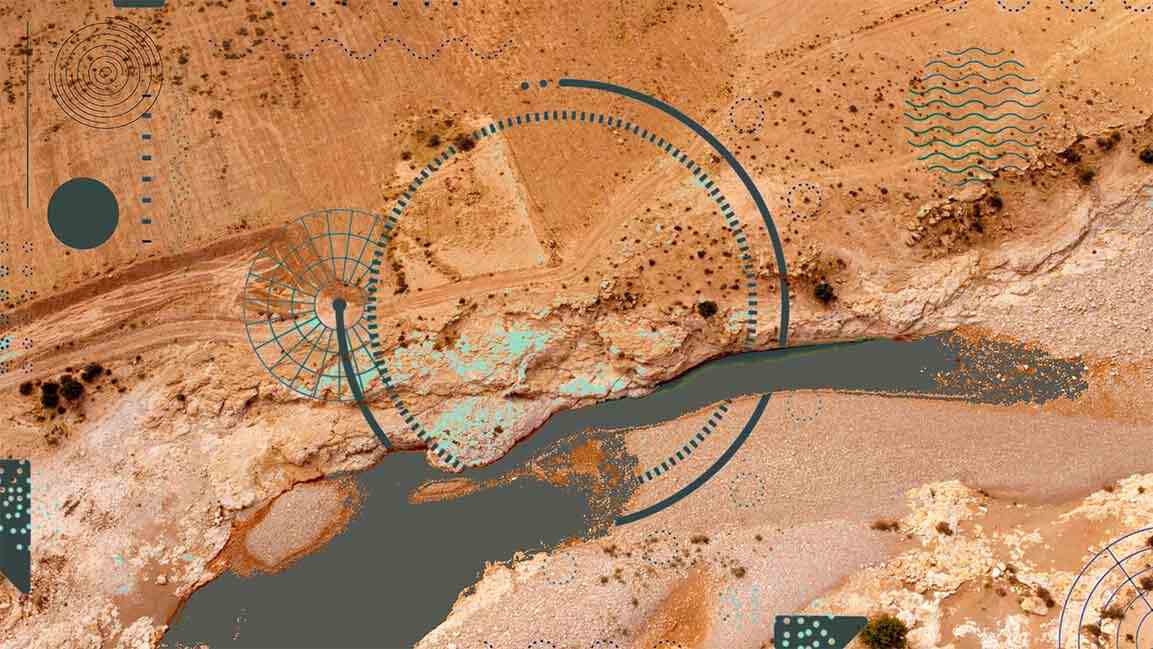- | 9:00 am
Drought-prone Egypt’s water scarcity is getting worse. So what is the way out?
Climate change, poor water management and population growth are key drivers of a worsening water crisis in the country.

On any hot summer day, one can see hundreds of men, women, and children, each with as many containers as they can carry, milling around the water truck in remote areas in Egypt. Severe water cuts have forced people in many Nile Delta villages to wait hours, sometimes even days, for drinking water.
Egypt is in the grips of a water crisis. With a rising population and a fixed supply, the country has less water per person each year. The country is already below the United Nations’ water poverty threshold, and by 2025 the UN predicts it will be approaching an “absolute water crisis.”
Climate change, poor water management, recurring droughts, and the new Ethiopian hydropower dam on the Nile River are worsening the water crisis in the country.
“Egypt is prone to drought for several reasons, such as the lack of rainfall, which worsened because of the rise in temperatures caused by the increase in greenhouse gases. This also helps change the path of water precipitation. Climate change and temperature rising also lead to evaporation of water and a decrease in the levels of lakes and rivers in Egypt,” says Mohamed El-Kamel, Managing Director of Alashanek ya Balady Association for Sustainable Development.
The country’s sole dependency on the Nile makes it more challenging to combat water scarcity. Due to increasing temperatures and long periods of drought, the Nile is shrinking. “The country depends on the Nile for about 97% of its irrigation and drinking water, with all associated transboundary risks,” said Dr. Hani Sewilam, Minister of Water Resources and Irrigation of Egypt, at the Cairo Water Week.
Dr. Swailem, a scientist who worked at the UN, added, “We only have 50% of the needed water in the country. Climate change in Egypt has different forms and impacts, such as sea level rise, temperature increase, and hydrological changes.”
CONCERNS OVER MEGA-DAM RESERVOIR
While Egypt is facing worsening water shortages, many fear the Grand Ethiopian Renaissance Dam (GERD) upstream will only exacerbate the threat.
The crises caused by the GERD constitute a significant cause of concern for Egypt’s water security.
“If Ethiopia fills the reservoir between five and seven-year intervals, then the water share of Egypt will be decreased by somewhere from 12 to 25% during the filling period. So, it would be a good idea for the reservoir to be filled over a more extended period,” says Dr. Sherine Ahmed El Baradei, Associate Professor at the Civil Engineering Program, The German University in Cairo.
Construction of GERD on the Blue Nile in Ethiopia has been going on since 2011. Ethiopia has completed the third filling of its mega-dam reservoir on the Blue Nile, which raises further tensions with downstream neighbors Egypt and Sudan. Egypt recently protested Ethiopia’s planned third dam filling to the UN Security Council.
“Dams provide both good and bad effects,” she says. “But with Egypt being so dependent on the Nile, serious agreements must be made to ensure that the bad effects are minimized,” adds al-Baradei.
According to al-Baradei, the immense turbulence caused by the GERD, a hydropower dam, damages the fauna and flora of the water downstream. This will change the water quality reaching the farmers and fisheries of Egypt, seriously impacting their livelihood. “When the Aswan High Dam was built, farmers, fisheries, and many others were seriously affected for decades by the lowering of nutrients, silt, and fauna in the water,” she says.
POSSIBLE SOLUTIONS TO THE WATER CRISIS
Despite the magnitude of the problem, experts say the government has taken little action to resolve the crisis.
Egypt’s top urgency is universal access to clean water. However, according to experts, mismanagement and unequal distribution contribute to water shortage problems.
“Egypt needs to consider the population increase by implementing projects that help switch to rational irrigation,” says El-Kamel. “Additionally, implementing several mega projects in wastewater and agricultural drainage water treatment, as well as expansion of desalination plants; weather seawater or groundwater.”
There are no quick or easy fixes to water scarcity. The Ministry of Water Resources and Irrigation claims it is reusing water for food production to reduce the gap between water needed and available. “Egypt made huge investments in recycling the water,” said Dr. Swailem at the Cairo Water Week.
Another solution, according to experts, is adopting water-efficient agricultural technologies like drip irrigation instead of the flooding techniques still used by most Egyptian farmers.
As Egypt is trying to combat its water security issues by implementing various projects, such as treatment plants, it launched a new Water Adaptation and Resilience initiative in collaboration with World Meteorological Organization at COP 27 in October.
It is also rolling out a national water management strategy to run through 2037. It includes building desalination systems and sewage treatment stations that aim to turn saltwater and wastewater into freshwater.
Last year, the country also launched a $15.3 million New Delta project to develop a coastal agricultural area in the Nile Delta.
“A lot of initiatives and projects are taking place in Egypt that were presented at the Cairo Water week, and these projects should help increase water security,” says El-Kamel.
However, until those projects become operational, people will be forced to wait in line to get a few buckets of water.







































